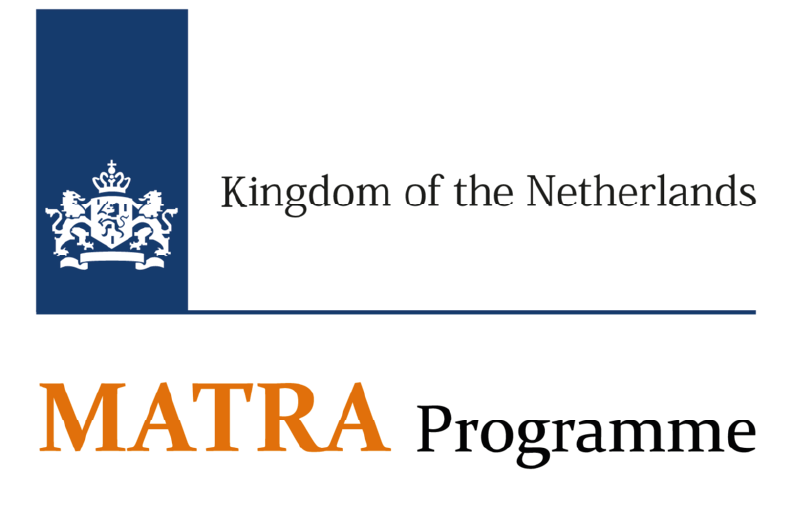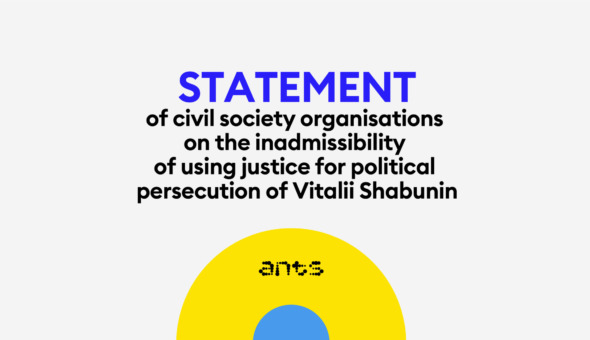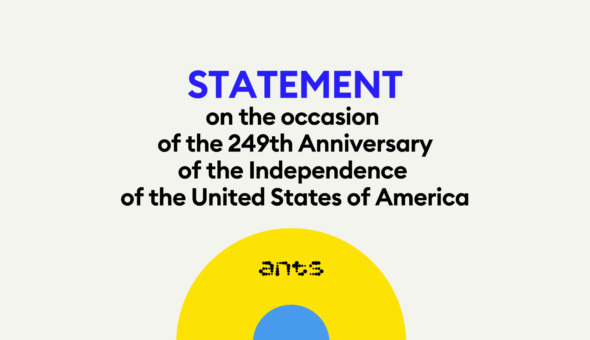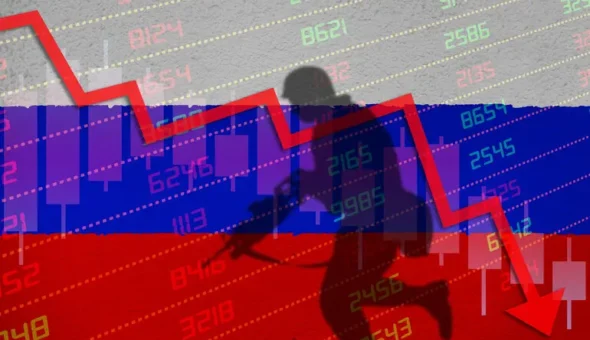
At the beginning of 2024, the problem of a lack of communication within Ukrainian society and a drop in trust in various political institutions became particularly evident. In such conditions, it is especially important to create platforms that can serve as tools for strengthening the stability of Ukrainian society and the inclusive search for joint solutions.
The forum “STANDING VICTORY: From the Resilience of Citizens to the State of Gratitude”, which took place on February 9, set itself the goal of identifying the key challenges that await Ukrainian society in 2024-2025 in the conditions of a full-scale war. The purpose of the event was also to bring together potential partners from various industries and regions of Ukraine for the exchange of experience and effective interaction. The forum was organized by the National Interests Advocacy Network “ANTS”. Ministers, deputies, representatives of local self-government, diplomats, journalists, activists and representatives of the public sector from different regions of Ukraine were involved in its participation.
In the breaks between the panels, charismatic local leaders – artists, activists and innovators from different regions of Ukraine spoke about their contribution to the resistance and development of the country. While the main panels were devoted to discussions about the most acute challenges of modern times for Ukraine. Among them: international support for Ukraine; social policy in conditions of a demographic crisis; state policy regarding veterans; and the role of local self-government bodies in ensuring the stability of the state.

The event began with a panel, with the participation of ambassadors and representatives of international organizations. Among the panel speakers are the ambassadors of Japan and Italy, representatives of the embassies of Germany and the Netherlands, representatives of the USAID Fund, and the EU Delegation to Ukraine. They talked about plans for financial support for Ukraine, called for the continuation of reforms (in particular, anti-corruption reforms and decentralization), expressed cautious optimism about the prospects of confiscating russian assets in favor of Ukraine, and also expressed confidence in the country’s European future.
The Japanese Ambassador to Ukraine, Matsuda Kuninori, was remembered for his references to Japan’s historical experience of successfully conducting military operations against Russia during the Russo-Japanese War 120 years ago. Japan at that time, like Ukraine now, seemed like a vulnerable and fragile country, which, however, was able to win with the support of international partners. The ambassador advised Ukraine not to worry about possible financial debts that will arise during the financing of the resistance. Instead, it is important to maintain unity within the country.

At the next panel entitled “Strong as the Earth: The Present and Future of Ukraine’s Human Capital,” experts discussed ways to solve key social problems, primarily the demographic crisis caused by mass migration and hostilities.
Olena Sas, ANTS Network Expert, emphasized that the problems related to Ukraine’s demographic losses since the beginning of the full-scale attack have not yet been fully investigated. However, already today many people in Ukraine are forced to do something other than what they used to do, or at least significantly improve their efficiency at their current place of work. This increases the importance of education and outreach projects to fill gaps in areas that today often lack staff or expertise. People’s Deputy and Journalist Mykola Kniazhytskyi drew attention to the fact that security is not the only reason for mass migration. People also emigrated due to numerous internal problems, including unemployment and a sense of instability. The expert complained about the government’s lack of attention to solving the key problems of internal migrants and displaced persons. For example, state programs that enable immigrants to learn a new profession.

The panel titled “The State of Gratitude: Effective Public Governance Instead of Populist Solutions and Handicap Management” was related to the topic of veterans’ rehabilitation. Most of the speakers emphasized that there is simply no such thing as a veteran policy and a stable and consistent plan of action in Ukraine. The availability of benefits for certain services does not replace politics, experts emphasize. The public sector offers its proposals for global plans and strategies, but the state effectively ignores them. A window of opportunity to solve this problem may be the appointment of a new Minister of Veterans Affairs.
Another problem for the rehabilitation of military personnel is the lack of personnel, such as professional and qualified psychologists. The head of the Pryncyp organization, Masi Nayem, noted that the sphere of psychological services is not controlled by the state today. Therefore, it is practically impossible to punish harmful or ethically incorrect psychologists.
People’s Deputy Roman Kostenko presented his own draft law on motivation for military service at the forum. According to the deputy, more transparent information about the losses of Ukraine will encourage military service, as it debunks negative stereotypes about mass losses. The People’s Deputy also offers additional payments for the destruction of military equipment or for being on combat deployment.

In the next panel entitled “The role of local self-government bodies in ensuring the stability of Ukraine in conditions of war”, local deputies and heads of communities shared their experience of reconstruction and work in regions suffering from hostilities or even under occupation.
In particular, the speakers talked about working in a regime of personnel shortages and the need to be “universal soldiers”. Director of the Frontier Institute, Yevhen Hlibovytskyi, emphasized that local self-government became the only political institution that almost did not lose public trust in 2023. He also drew attention to the fact that the decentralization reform is important, firstly, because it provided the opportunity for the grassroots subjectivity of Ukraine to develop.
Vitaliy Belobrov, the deputy head of the Kherson military administration, said that in the cities that survived the occupation and are still under regular shelling, business practically does not work, and the local authorities are not even able to stimulate its development. As a result, local self-government bodies become almost directly dependent on subventions from the central budget. The mayor of Mykolaiv city, Oleksandr Senkevich, accused the central government, which often perceives the heads of settlements as its political competitors, of spreading negative stereotypes about the local government. Ultimately, this will affect the ratings of the central government itself, the expert emphasizes.
People’s Deputy Vitaliy Bezgin noted that 2023 began a negative trend of falling effective cooperation between local and central authorities. Despite the fact that the first months of the full-scale attack demonstrated the capacity of Ukrainian communities. He also emphasized that it is already important to implement international projects with funds from European funds. This is necessary so that, at the moment of accession to the EU, both Ukrainian municipalities and the central government already have significant experience in developing such grants.

The logical continuation of this conversation was the panel “Economics of Victory from the Point of View of Business and Communities”. In it, experts discussed optimal models of economic interaction between the “center”, local authorities and business in conditions of a full-scale war. During the discussion, the Director of the Institute of Territorial Development, Yurii Hanushchak, urged to treat the regions as the capillaries of the Ukrainian economy, which need to be strengthened for the normal functioning of the body, no less than the aorta (center). Poltava City Council deputy Yuliia Horodchanina criticized the government’s efforts to over-centralize power. In particular, the idea of adopting the budget by the head of the military administration, who knows the specifics of the region worse than local deputies. The deputy also emphasized the importance of continuing the judicial reform for the normal operation of business in the regions.
Instead, the executive director of the Centre for Economic Strategy urged not to treat decentralization as a “sacred cow” and to allow a review of the balance of expenditures in wartime. Deputy Yulia Klymenko admitted that the current legislative regulation needs to be revised. At the same time, she called to remember that wartime requires centralization and not decentralization of resources.
Finally, in the last panel of the forum, the leaders of the leading Ukrainian and international grant organizations (the “Join” program, the cooperation department of the German Embassy in Ukraine and ISAR Unity) talked about the specifics of their work and answered the questions of representatives of public organizations regarding the possibilities of financial support for the Ukrainian public sector.
Author:
Andrii Liubarets, National Interests Advocacy Network “ANTS”
This publication has been made within the frameworks of the MATRA Programme supported by the Embassy of the Kingdom of the Netherlands in Ukraine. The opinions expressed are those of the author(s) only and should not be considered as representative of the Embassy’s official position





